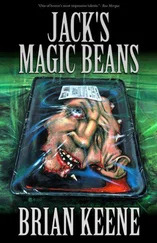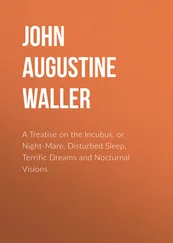It was worse when it rained, or in wintertime. What was I to do then? I’d go to the building site and stand under the roof of an open shelter. The watchmen would let me in. I’d slip one or another of them something from time to time. Once the construction had a roof things were a little easier. I’d go into one of the shops. Though in winter, especially when there was a severe frost, you couldn’t practice for long. I had these gloves where I’d cut off the fingertips, down to about here, so only the ends of my fingers would show. But I still had to breathe on them every so often, because they’d go numb.
I don’t know where that determination of mine came from. I’m not going to claim that I knew he was going to die soon. Maybe the saxophone had moved something in me, the fact that it was mine. And without needing to scrimp and save, without having to go to huge lengths. One day he said to me:
“I often thought to myself, why am I keeping the saxophone? I don’t play, it just sits there in its case. I’ve got a grandson, but he’s in the slammer. When he comes out he’s only going to sell it for a song when I die. He’s your age. Go on, go stand in your circle.”
I went and stood where he told me to. He sat in his circle. His eyes were closed, he was listening to me play. All of a sudden one eye opened, the blind one. I could have sworn he could see me with that eye. It even glinted, and I stopped playing.
“Come to Mass with me on Sunday, ask the priest. The church is empty most of the week, maybe he’ll let you practice there. The truth is, this warehouse is useless. You really should have a proper space. What else is there around here? The firehouse? That’s even worse.”
He died, the construction was finished, I moved to another site then another one after that. We were building a cable factory, I remember. One day I went to the store to get a loaf of bread, and I heard someone talking about a ruined church in the neighborhood, it had been like that since the war. They held their services in a hut somewhere else. After the war they’d taken prefab panels from camps and barracks that were being torn down, and in the areas with a lot of war damage they used them to put up apartment buildings, barns, cattle sheds, government offices, community centers, schools. They’d built the church building out of those kinds of panels. It stood at one end of the village, while the ruined church was at the other end.
One day I went to have a look, and on the off chance I took my saxophone in its case. The place wasn’t completely ruined, that is, not to its foundations. But the war had left its mark. The steeple was gone. Half the roof was missing. The other half was riddled with bullet holes. There were big gaps in the walls. Not a single window had survived, though once there must have been stained glass windows, you could still see the remains of colored glass at the edges. The main doors had been torn off. A bomb must have hit the organ loft. You went in over rubble, with bits of the smashed organ poking out from among the debris. I accidentally stepped on something and it let out a moan that gave me quite a scare. But there wasn’t any way in except through the rubble. There wasn’t a single pew, no sign of confessionals, and where the main altar and side altars had been there were just empty spaces. On the floor were the remains of campfires. Soldiers must have burned the pews and confessionals and altars to cook food or keep warm. The walls looked like they’d been shot up by machine gun fire, the figures of the saints were all smashed. Here there was part of a head, over there an elbow or a foot in a funny-looking sandal. I picked up a hand, it was missing the thumb right here. I started to look around, see if I couldn’t find it someplace. I found another hand, it had all its fingers and it was clutching part of a rosary. But it turned out not to be a match for the first hand, even though one was a left hand and the other a right. I won’t say any more about the other fragments, I’m sure you can imagine. You had to watch where you stepped. In a word, there was debris and wreckage everywhere. On top of that, the rain had been pouring in for all those years since the war, snow had blown in, there’d been hard frosts, and there was no indication that anyone had tried to protect the place from further ruin.
The only thing still in any kind of shape were the Stations of the Cross. Though they were shot up and blackened, some of them had lost almost all their paint, so you couldn’t tell if Christ was carrying his cross or if the cross was moving along on its own. That and the pulpit. It was mighty strange that that survived, let me tell you. It was also peppered with bullet holes. But there wasn’t even one step missing. Yes, it was made of wood. Maybe they made speeches from there to keep the soldiers’ spirits up. Or maybe there’d been some anniversary. Holidays are celebrated just the same during wartime.
I went into the pulpit. I had no intention of playing, the ruins had really depressed me. I only wanted to look down on it all from up there. I’d never been in a pulpit before. When I was a child I always thought that from the pulpit the priest could see everything in people’s heads. Even if someone had a lot of hair, or if the women had winter headscarves on, he could still see everything. So during the sermon I’d hide behind father or mother so he wouldn’t tell me off in front of the whole congregation, saying, See, over there, in that little blond head evil is already lurking, and remember that evil grows as a person grows, brothers and sisters. Because every sermon was always about evil. He’d often call out the first and last names of some man or woman in that regard.
So now it was me standing in the pulpit, looking down from above on the devastation. And after a moment, it was as if some voice whispered to me to start playing. Maybe it was even the ruins themselves. I opened the case, took out my saxophone, put the mouthpiece between my lips. Though I still wasn’t sure. Then all at once my saxophone seemed to start playing on its own. It played and played, and I only seemed to be listening to what my playing sounded like amid the destruction. At that point I see someone making his way across the rubble. Disheveled gray hair, a walking stick raised and being waved in my direction. He was shouting something and straining as if he was trying to rise into flight. But his right leg wouldn’t let him, at every step he sank down on it so low it looked like he’d collapse before he reached me. I had the impression of someone rising up out of the debris. Gasping and sweating, he finally hobbled up to the pulpit and as if with his last breath he shouted:
“Get down from there! Stop making all that noise! Get down, do you hear?” He went under the pulpit and started hammering on it from below with his cane. “Get down! Get down!”
I kept on playing. He came out from underneath, stood still, tipped his head back to look at me, and seemed to start listening. He was evidently unable to keep his head in that position, because he put both hands on his cane and rested his chin on them. He stood motionless and listened. At a certain moment he looked up again.
“What’s that tube you’ve got there?” he asked. “The thing you’re playing?”
“It’s a saxophone.”
“Never heard of it. Do you think God would like it? He used to always listen to the organ. But the organ’s lying under the rubble, like you see. If you gave me a hand we could fish it out. I can’t manage on my own. I’m too old. And when I put my cane aside I can’t keep on my feet. I was the organist here my whole life. That was one fine organ! Over there in the hut they don’t need me. They don’t even have a harmonium. So I stayed here. God stayed with me. He wouldn’t go someplace where they don’t have music.”
Читать дальше












